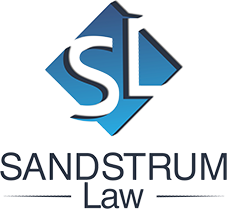Employee Monitoring – CONTACT YOUR ATTORNEY TO SEE IF YOUR EMPLOYMENT POLICY REGARDING EMPLOYEE MONITORING OR EMPLOYEE MONITORING ACTIVITY IS IN COMPLIANCE WITH THE LAW.
Monitoring of employees in the workplace falls under the federal Electronic Communications Privacy Act (ECPA) if that monitoring involves electronic communications and/or use of the telephone or voicemail. State constitutional protections may apply in cases of computer monitoring and video surveillance of employee work areas. Common-law invasion of privacy claims may also come into play in employee monitoring cases, although the plaintiff success rate with such claims is fairly low.
— Generally, employers may monitor employees in the workplace if they have a valid business reason for doing so and give employees notice that such monitoring may take place.
— Employees generally are accorded a lower expectation of privacy when using employer-provided communication devices such as telephones, e-mail, and computers.
— Employee restrooms and other areas where privacy interests are greater carry a higher expectation of privacy and monitoring in such areas leave the employer more vulnerable to liability.
— Some states have laws that require employers to disclose to employees that they monitor e-mail and other forms of electronic communication.
— The ECPA prohibits the unauthorized interception of communications.
— The person or entity that provides a wire or communication service can make such authorization, not just the employee. This exception may be available to employers who operate private e-mail systems.
— Interception occurs when the contents of a communication are acquired during transmission.
— The ECPA prohibits unauthorized access to stored electronic communications.
— Electronic storage is the temporary, intermediate storage of a wire or electronic communication that is incidental to the electronic transmission.
— The ECPA allows monitoring of telephone calls under certain circumstances in the ordinary course of business.
— An employer may be required to provide notice that it is monitoring phone calls or electronic pagers.
— Once an employer learns that a telephone conversation is personal, it must cease its monitoring.
— Employees may consent to being monitored.
— Video surveillance of common and open work areas is usually permissible.
— State statutes may regulate employee monitoring more aggressively than federal law.
Monitoring of employees in the workplace falls under the federal Electronic Communications Privacy Act (ECPA) if that monitoring involves electronic communications and/or use of the telephone or voicemail. State constitutional protections may apply in cases of computer monitoring and video surveillance of employee work areas. Common-law invasion of privacy claims may also come into play in employee monitoring cases, although the plaintiff success rate with such claims is fairly low.
— Generally, employers may monitor employees in the workplace if they have a valid business reason for doing so and give employees notice that such monitoring may take place.
— Employees generally are accorded a lower expectation of privacy when using employer-provided communication devices such as telephones, e-mail, and computers.
— Employee restrooms and other areas where privacy interests are greater carry a higher expectation of privacy and monitoring in such areas leave the employer more vulnerable to liability.
— Some states have laws that require employers to disclose to employees that they monitor e-mail and other forms of electronic communication.
— The ECPA prohibits the unauthorized interception of communications.
— The person or entity that provides a wire or communication service can make such authorization, not just the employee. This exception may be available to employers who operate private e-mail systems.
— Interception occurs when the contents of a communication are acquired during transmission.
— The ECPA prohibits unauthorized access to stored electronic communications.
— Electronic storage is the temporary, intermediate storage of a wire or electronic communication that is incidental to the electronic transmission.
— The ECPA allows monitoring of telephone calls under certain circumstances in the ordinary course of business.
— An employer may be required to provide notice that it is monitoring phone calls or electronic pagers.
— Once an employer learns that a telephone conversation is personal, it must cease its monitoring.
— Employees may consent to being monitored.
— Video surveillance of common and open work areas is usually permissible.
— State statutes may regulate employee monitoring more aggressively than federal law.
Information provided by Westlaw.

